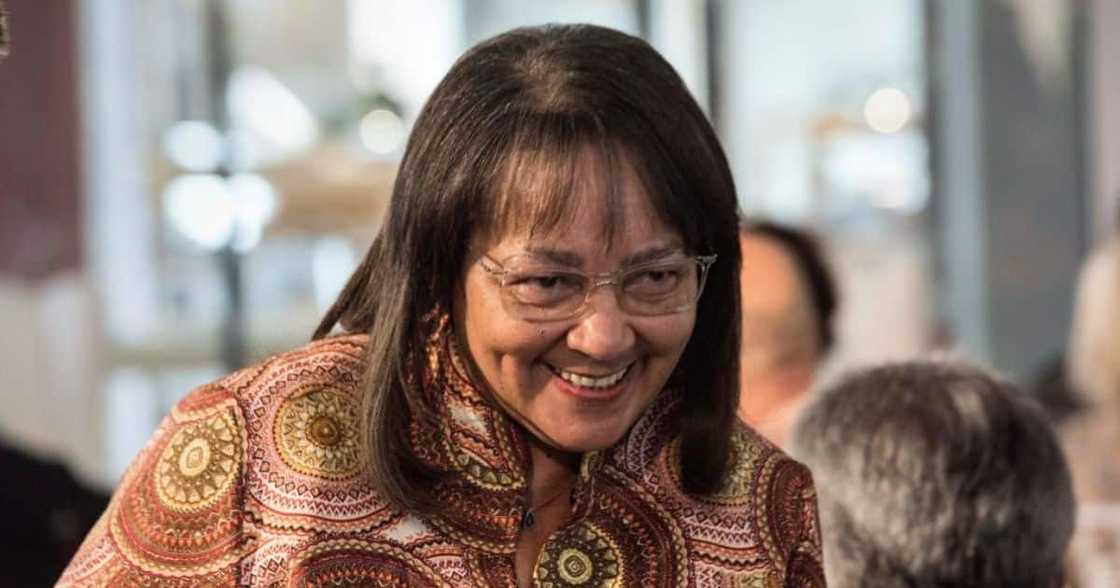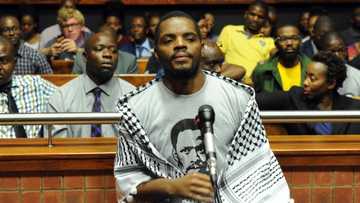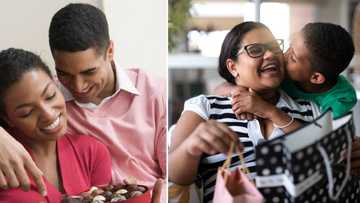Patricia De Lille in Hot Water After "Delusional" Women’s Day Speech Left South Africans Enraged
- GOOD party leader and Public Works and Infrastructure Minister Patricia de Lille has been called "out of touch" for victim-blaming in a speech on Women's Day
- The politician claimed that women are to blame for the terrible things that happen to them
- South Africans are shocked by the statement but de Lille has stuck by her sentiments, adding that women must speak up if they want to end GBV
New feature: Check out news exactly for YOU ➡️ find “Recommended for you” block and enjoy!

Source: Getty Images
JOHANNESBURG - Enraged South Africans have called out the leader of the GOOD party Patricia de Lille after she made a speech saying women allow the bad thing to happen to them.'
Ironically, de Lille made this statement at the launch of her party's anti-GBV campaign on Women's Day. She said that if women are to end GBV, they must end the culture of silence, TimeLive reported.

Read also
AKA issues a stern warning to followers about fake prophets: "God is a God of love and warmth, not fear"
De Lille said:
“Women, let me tell you one message today I live by every day. I believe all the bad things that happen to us is because we allow it to happen. But from today, we are saying to you, don't shut up.”
PAY ATTENTION: Never miss breaking news – join Briefly News' Telegram channel!
South Africans weigh in on De Lille's remarks.
Some South Africans are shocked at how delusional and insensitive the minister is, with some even accusing her of contributing to the culture of silence that enshrouds GBV.
Here are some comments:
@DeniseL61832287 commented:
"That is a very insensitive comment!"
@erkeengel7
"We allow ourselves to be raped by armed men overpowering us? For fuck's sake!! How do you suggest we avoid allowing rape. Shoot to kill? Oh wait, we are more likely to end up in jail for murder than the men trying to rape us!"
@SylvaineStrike
"This is precisely the sort of rhetoric that makes all abused women feel responsible for what is done to them. UNACCEPTABLE that female politicians are not targeting men to speak out against GBV?!?! WHY SHOULD WOMEN?! Is what is done to women not enough?!?!"
@FaredaVandeKaap
"Yes, women SHOULD speak out against #GBV, but this will ONLY happen if there is a supportive environment for them: Caring #SAPS officers trained to deal with #GBV cases at well-resourced #PoliceStations who swiftly arrest perpetrators & get them into an efficient #JusticeSystem!!"
Undeterred by the backlash received, De Lille claimed in a statement she knew her speech wouldn't make a difference because speeches don't end gender-based violence, but women can if only they spoke up.
She also called on men and boys to join in on the fight against GBV and call out their friends and relative.
De Lille added in her statement:

Read also
Fees Must Fall activist trends on social media, calls out the ANC for creating a dependency state
“I need to highlight that this means also speaking out when you hear abusive comments or disrespectful jokes, when you receive inappropriate pictures or when you find yourself part of cat-calling 'among the boys' on the street.”
Gender-based violence in SA: 4 women share harrowing experiences of assaults and re-victimisation by cops
In a related matter, Briefly News reported that South African women are frustrated with the current state of gender-based violence in South Africa. We spoke to four women who shared their experiences and hope for South Africa.
Gender-based violence gets thrown into the spotlight every single year. It usually takes high-profile cases that create outrage in what has been called a pandemic by President Cyril Ramaphosa.
The deaths of women like Reeva Steenkamp in 2014, Karabo Mokoena in 2017, Zolile Khumalo in 2018, Uyinene Mrwetyana in 2019, Tshegofatso Pule in 2020 and Nosicelo Mtebani in 2021 were all talked about in mainstream media and had South Africans think about the prevalence of crimes against women.
New feature: check out news exactly for YOU ➡️ find "Recommended for you" block and enjoy!
Source: Briefly News


